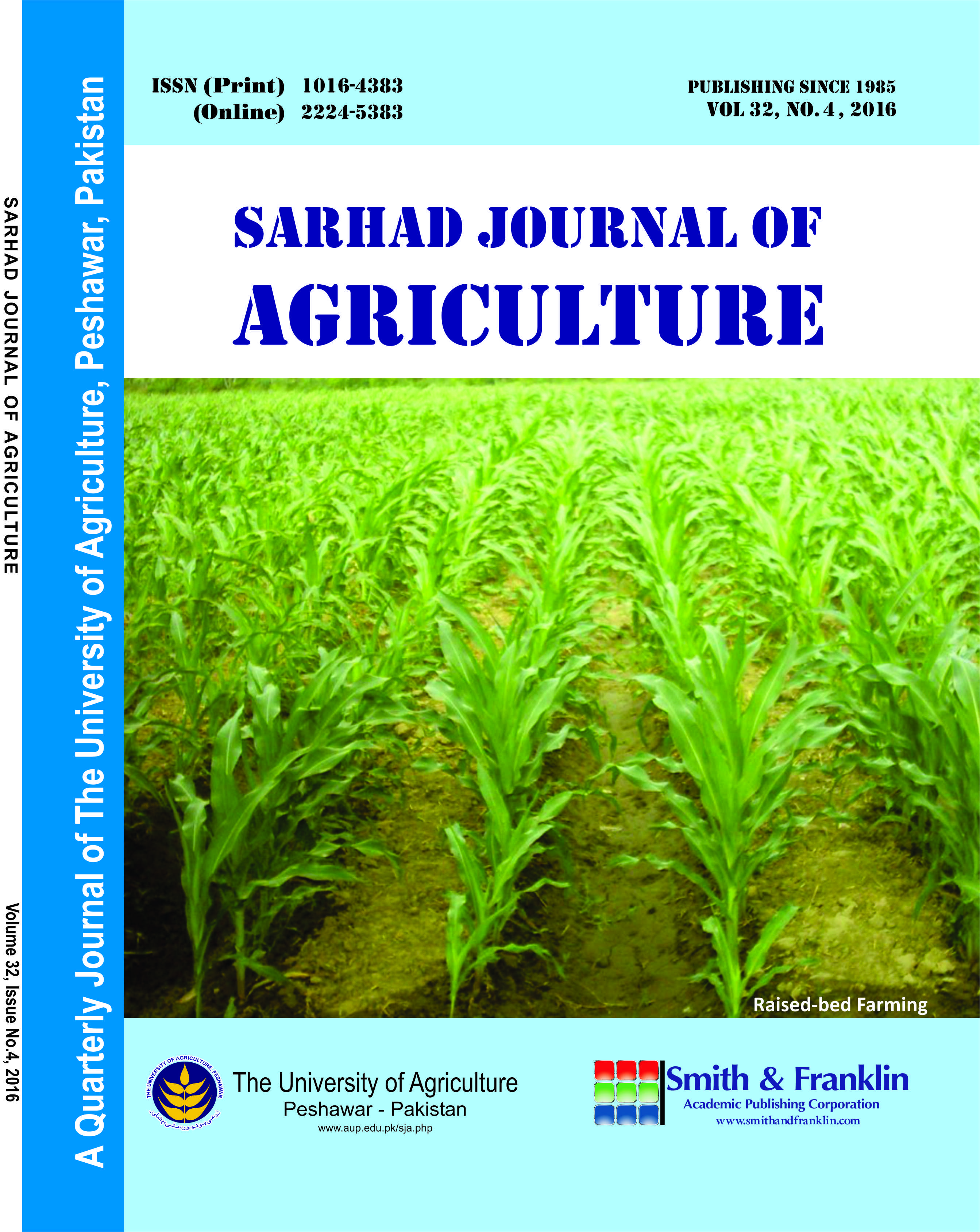Effect of Exogenous Application of Salicylic Acid, Potassium Nitrate and Methanol on Canola Growth and Phenology under Different Moisture Regimes
Effect of Exogenous Application of Salicylic Acid, Potassium Nitrate and Methanol on Canola Growth and Phenology under Different Moisture Regimes
Abdur Rehman1* and Shad Khan Khalil2
ABSTRACT
Canola (Brassica napus L.) is a rich source of vegetable oil. Its production is often limited by shortage of water during reproductive stages. Salicylic acid, potassium nitrate and methanol are considered to induce drought tolerance in plants. Field trials were conducted at Agricultural Research Institute Tarnab, Peshawar-Pakistan to study the effects of moisture stress and foliar application of chemicals at different growth stages on canola growth and phenology during 2015-16 and 2016-17. The experiment comprised of four moisture levels (optimum water, 10%, 20% and 30% reduced irrigation water), three chemicals (salicylic acid 0.5mM, potassium nitrate KNO3 1% and methanol 20% v/v basis) applied at three different stages (bud formation, 20% flowering and 20% pod formation). The experiment was laid out in RCB design with split plot arrangement having three replications. Moisture levels were allotted to main plot while treatments (application of chemicals at different growth stages and water spray) to sub plot. Chemicals were sprayed in solution form on the leaves of the canola plants. Results indicated that reducing irrigation water shortened days to 50% flowering (103 days), days to 50% pod formation (120 days) and days to maturity (161 days). Optimum water supply delayed days to flowering (107 days), days to pod formation (122 days) and days to maturity (166 days). Moisture stress reduced number of branches plant-1 (5.6) and leaves plant-1 (12.8). Application of salicylic acid (SA) at the rate of 0.5mM improved number of branches (6.34), leaves (13.69) and delayed phenological stages of canola compared to KNO3, methanol, water spray and control (no spray). Application of salicylic acid at bud formation stage increased number of branches plant-1 (6.37), leaves plant-1 (13.89) and delayed maturity (163.9 days). Aphids incidence decreased with 30% reduced irrigation water (37 aphids plant-1). Application of salicylic acid also decreased aphids incidence (47.31 aphids plant-1) compared to control. It is concluded that limited water supply affected canola growth and maturity. Salicylic acid was more effective than potassium nitrate, methanol and water spray in improving growth of canola under optimum and limited water supply.
To share on other social networks, click on any share button. What are these?







